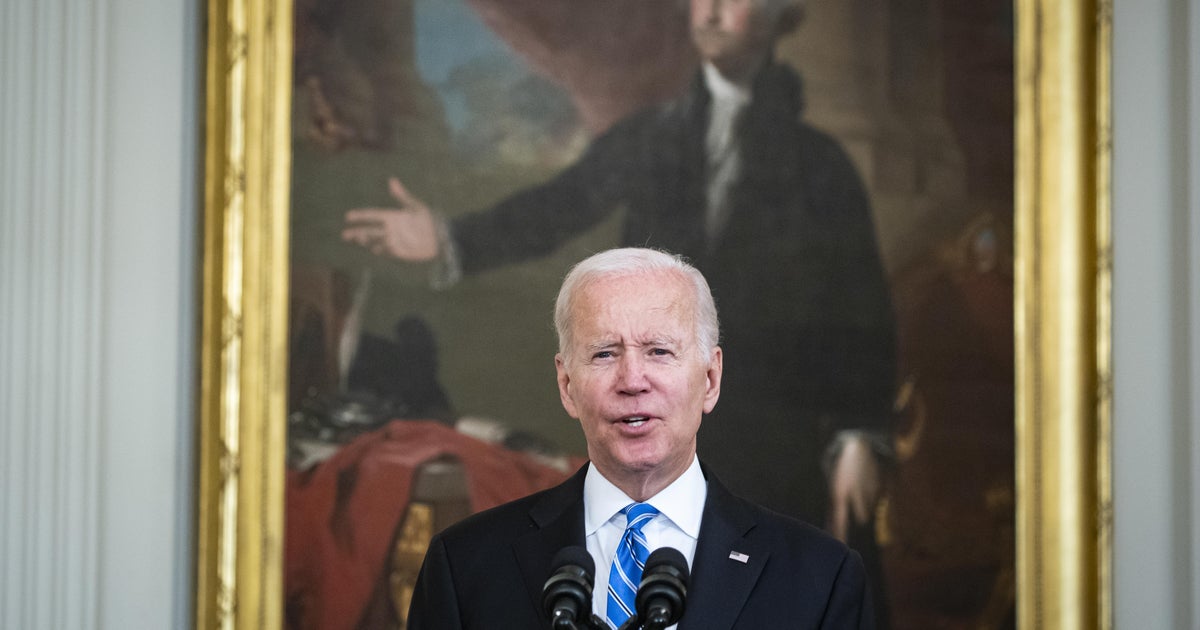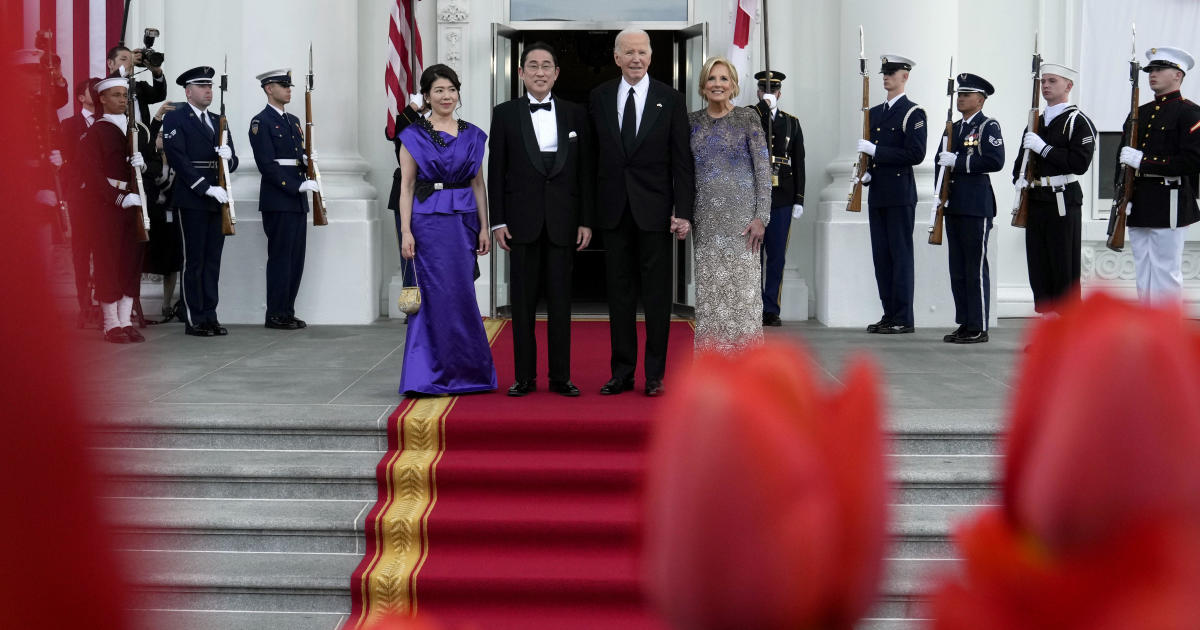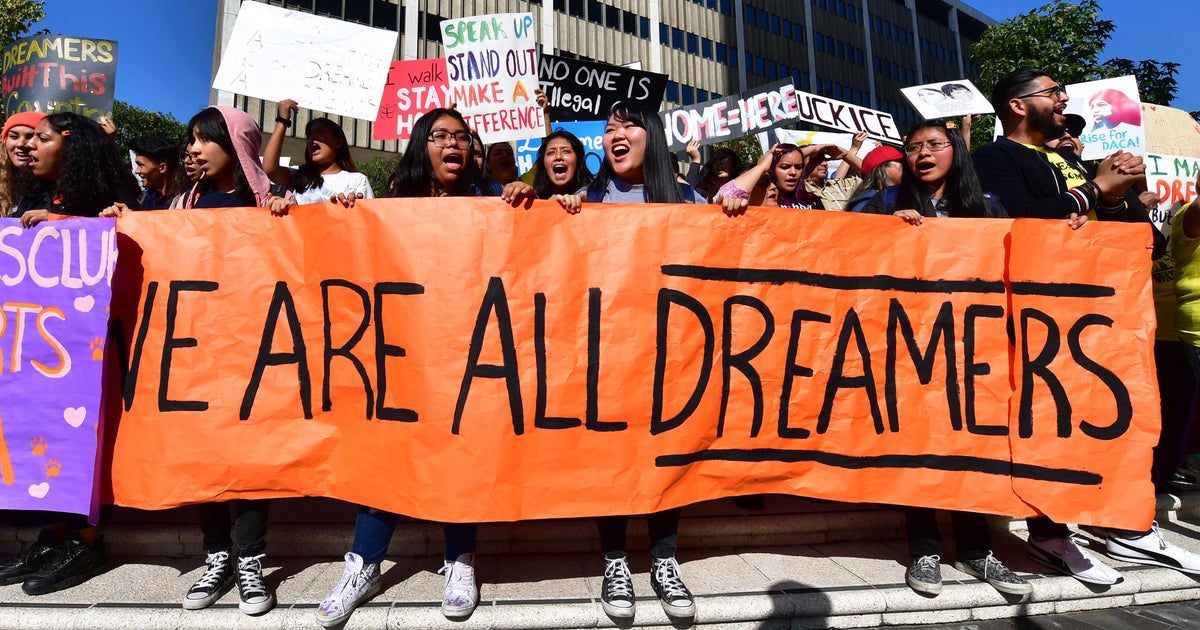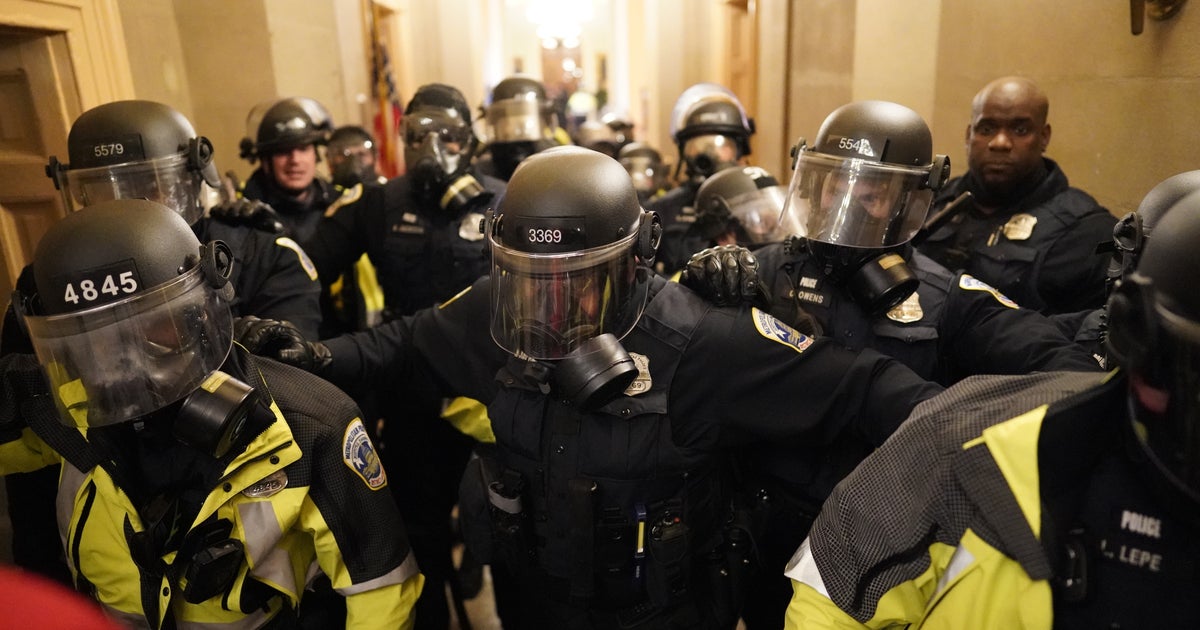Arguments over $15 minimum wage persist as Biden pushes COVID economic rescue plan
President Biden is among those who believe that raising the federal minimum wage to $15 per hour is what's needed to bring the lowest-paid Americans out of poverty. "No one in America should work 40 hours a week making below the poverty line," he said Friday. "Fifteen dollars gets people above the poverty line."
It's a platform he ran on in 2020 and it's part of his American Rescue Plan to tackle the pandemic and resuscitate the economy. But the provision is already encountering resistance, with lawmakers disagreeing about how to address the pandemic's worst economic effects.
Critics argue that raising the minimum wage wouldn't help the economic recovery. When Mr. Biden's plan was released, Florida Senator Rick Scott, a Republican, declared that a $15 minimum wage would "kill our small businesses." The U.S. Chamber of Commerce, which praised the plan overall, also took issue with the wage boost.
But advocates and economists say there's no better time to raise the minimum wage than now.
"The fact that two weeks into the shutdown back in March we saw literal breadlines in this country because half of Americans don't even have enough savings to cover a week's worth of expenses (and) are living paycheck to paycheck — that is a reflection of the fact that our wages are so low," said Tsedeye Gebreselassie of the National Employment Law Project.
"Even if there were not a pandemic, it's well overdue," said economist Ben Zipperer of the Economic Policy Institute.
Has a $15 minimum wage eliminated jobs?
Opponents argue that raising the minimum wage would hurt businesses and force job cuts. The Congressional Budget Office estimated in 2019 it could lead to the loss of 1.3 million jobs.
"Those kinds of scare stories are theoretically possible, but they don't actually play out in the data," said Zipperer.
The Senate Finance Committee raised the CBO's job loss figure with Treasury Secretary Janet Yellen in her confirmation hearing last week. She disputed that notion.
"Researchers often look at what happens when one state raises its minimum wage and a neighboring state leaves it alone to see how businesses fare in the two different places with different treatments, and the findings are that job loss is very minimal if anything," Yellen said.
Her assessment seems to be borne out by a study showing that more than 130 state-level minimum wage increases over several decades left the overall number of low-wage jobs basically unchanged over five years after the increases.
"When there has been historically in the United States minimum wage increases ... the legislation tends to do what it's intended to do, that it raises wages and earnings for low-wage workers, without any sizable downside," Zipperer also said.
Some business groups even argue that the increased wages put money back into local economies and small businesses. Business For a Fair Minimum Wage has gathered more than 1,300 signatories in support of the effort, ranging from small businesses across the country to the U.S. Women's Chamber of Commerce.
Why hasn't the federal minimum wage increased in over a decade?
The federal minimum wage currently sits at $7.25 an hour and has not been increased since 2009. Meanwhile, the so-called living wage, meaning the bare essentials in the U.S, is estimated to be roughly $16 an hour or higher.
In 2019, the House passed a minimum wage hike nearly along party lines, 231 to 199. But it was dead on arrival in the GOP-controlled Senate. Now, Democrats control both chambers, but their majorities are tight.
"It's not stuck because the majority of people think the minimum wage is OK," said Gebreselassie. "It's just been very hard to move Congress to pass the minimum wage increase."
A Pew Research Center survey from 2019 shows that a $15 minimum wage has strong popular support, with 67% of Americans in favor of it, including 41% who say they strongly favor such an increase.
Over half the states — 29 — have raised the minimum wage above the federal minimum, according to the National Conference of State Legislatures. And the National Employment Law Center found that by the end of 2021, 40 cities and counties will have met or exceeded a $15 per hour minimum wage.
Even as Scott stated concerns over increasing the wage to $15, his own state recently approved a constitutional measure that would gradually raise the minimum wage to $15 an hour by 2026. The left-leaning Florida Policy Institute estimates the wage hike will have a substantial impact, since 2.5 million Floridians will benefit from it.
Another state on its way to a $15 minimum wage is Illinois, where Democratic Governor JB Pritzker signed a law that will gradually get it there, by 2025.
"It affected a lot more people than just me," said Adriana Alvarez, a single mom and McDonald's worker in the Chicago area. She got involved in First for $15 after she was approached by an organizer in a parking lot. At the time, she had gone two years without a raise. When she finally received one, it was ten cents.
"They get to keep billions in profit in their pocket while I'm over here scraping for dollars to pay for necessities like milk for my son at the time," she said.
Now, as the president proposes an increase as part of COVID relief, she's facing an additional health risk reporting to her job amid a pandemic. And while her pay has gone up because she's classified as an essential worker, her hours have been cut — she's now essentially breaking even. But Mr. Biden's proposal gives her hope.
"It's just awesome, because we need backup like that," Alvarez said of the president's plan. "We need for people to realize that it's not just a bunch of 'crazy fast food workers' talking about they want $15. Everybody deserves a livable wage, and I think $15 is just a start."
It's unclear whether the $15 minimum wage will have a path to passage as part of the rescue package with an evenly split Senate.
The White House says it wants to pass a bill with bipartisan support. But over the weekend, Vermont Senator Bernie Sanders, an independent, called for using budget reconciliation to pass the relief package, meaning Democrats wouldn't need 60 votes to get it approved. And on Tuesday, he joined other Democrats to introduce another stand alone minimum wage bill.
As for the lawmakers who oppose increasing the wage, Alvarez has a simple message.
"I would like for them to live off of what we're living off of, and for them to see why we struggle, what sacrifices we make, how hard we work."



